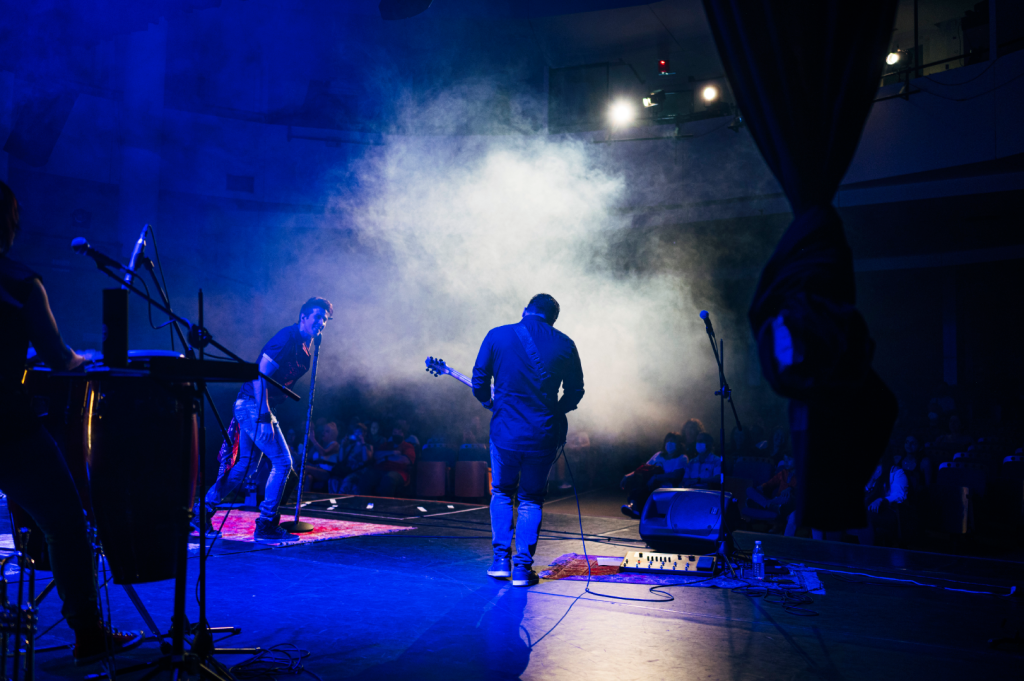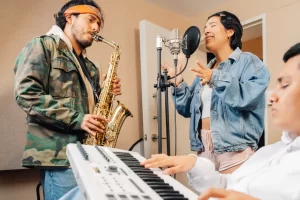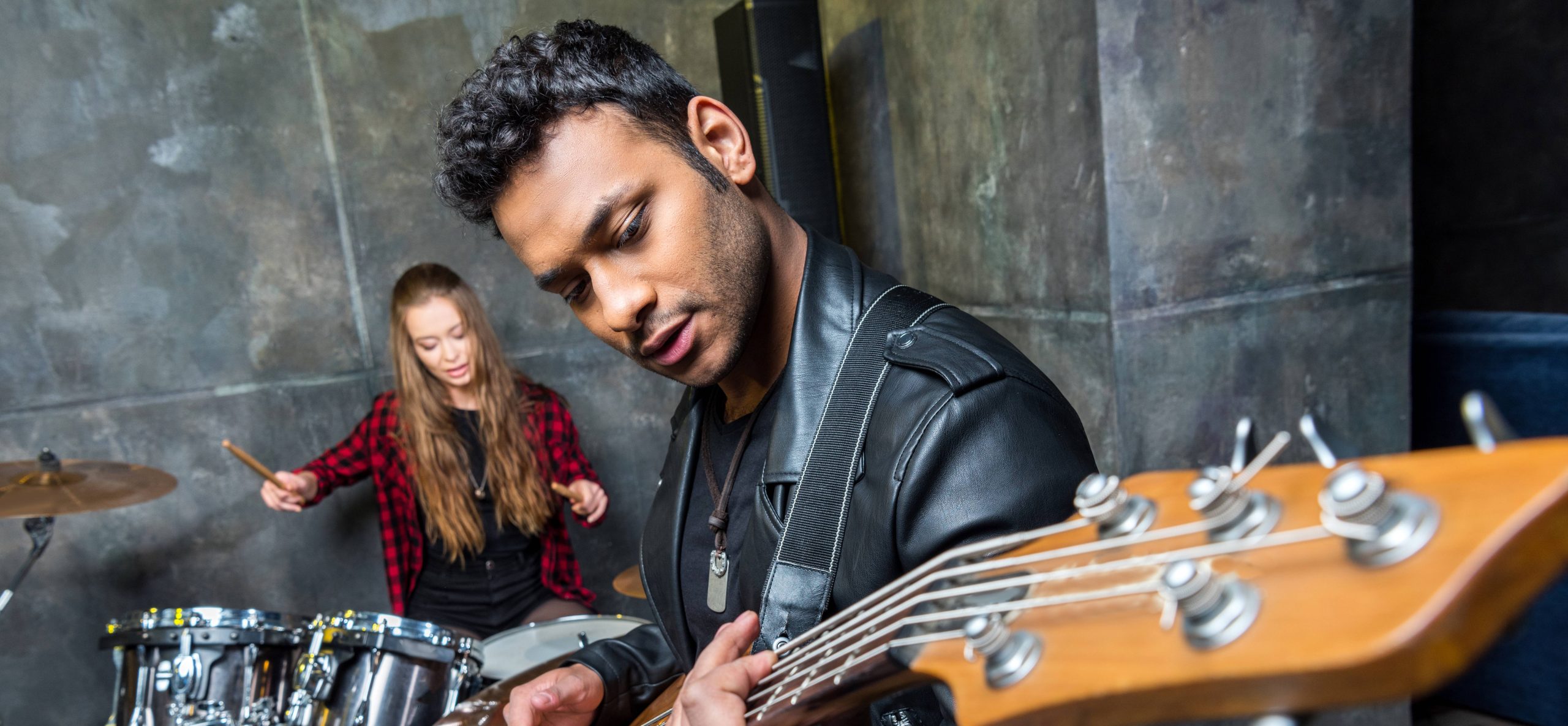Live performances are a crucial aspect of an emerging artist’s career, offering a unique opportunity to connect with fans, gain exposure, and generate income. Booking gigs and planning tours can be daunting, especially for those just starting out, but it’s an essential step toward building a successful music career. Performing live not only allows you to showcase your talent but also helps you build a loyal fanbase and create memorable experiences that can set you apart from the competition.
In today’s music landscape, the ability to perform live is more important than ever. With the proliferation of digital music platforms, live shows offer a tangible way for artists to engage with their audience and create a lasting impression. Gigs and tours also provide valuable opportunities to network with industry professionals, collaborate with other musicians, and gain practical experience in different aspects of the music business.
This step-by-step guide is designed to help emerging artists navigate the process of booking gigs and planning tours. From preparing your electronic press kit (EPK) and finding the right venues to approaching promoters and planning your tour route, we’ll cover all the essential elements needed to ensure a successful live performance strategy. By following these guidelines, you’ll be well on your way to hitting the stage and taking your music career to the next level.
Preparing to Book Gigs
Preparing to book gigs involves several key steps that will set you up for success in the competitive world of live music. First and foremost, it’s essential to build a strong online presence and create a professional electronic press kit (EPK). Your EPK should include a compelling biography, high-quality photos, music samples, videos of live performances, and press clippings or testimonials if available. This will serve as your digital resume and help you make a strong impression on venue bookers and promoters.
In addition to your EPK, creating a demo or a live performance video is crucial. This material showcases your talent and gives potential venues a sense of what to expect from your live shows. Choose your best songs and make sure the recordings are of high quality. A well-produced video that captures your energy and stage presence can be particularly persuasive.
Setting clear goals and a budget for gigging and touring is another important preparation step. Determine what you hope to achieve with your performances, whether it’s building your fanbase, promoting a new release, or generating income. A realistic budget will help you plan effectively, accounting for expenses such as travel, accommodation, and promotion. By laying this groundwork, you’ll be well-prepared to approach venues and promoters with confidence and professionalism, increasing your chances of securing gigs that can propel your music career forward.
Finding the Right Venues
Finding the right venues is a crucial step in ensuring successful gigs and tours. Start by researching venues that align with your music style and target audience. Look for places where artists with similar sounds have played, as these venues are more likely to be receptive to your music. Attend shows at these venues to get a feel for the atmosphere, audience, and acoustics. This firsthand experience will help you determine if the venue is a good fit for your performances.
Networking with local musicians and promoters can also provide valuable insights into the best venues for your gigs. Building relationships within your local music scene can open doors to performance opportunities and provide recommendations from those who know the landscape well. Musicians who have already performed at certain venues can offer advice on booking procedures and what to expect.
Utilizing online platforms and social media is another effective way to find venues. Websites and apps dedicated to live music can help you discover new places to play. Join online communities and forums where musicians share their experiences and recommendations. These resources can provide up-to-date information on venues that are actively booking and looking for new talent.
By taking the time to find the right venues, you increase your chances of successful performances that resonate with your audience and help you grow your fanbase. Ensuring that you play at venues suited to your music style and target demographic is key to making a lasting impact and building momentum in your music career.
Approaching Venues and Promoters
Approaching venues and promoters requires a strategic and professional approach to increase your chances of securing gigs. Start by crafting a personalized pitch that highlights why you’re a great fit for their venue. Your pitch should include a brief introduction, a link to your electronic press kit (EPK), and a few standout details about your music and recent achievements. Be sure to address the venue booker or promoter by name, demonstrating that you’ve done your research and are genuinely interested in their establishment.
Email is typically the preferred method of contact, but always check the venue’s submission guidelines to ensure you’re following their preferred process. Keep your email concise and to the point, making it easy for the recipient to quickly understand who you are and why you’re reaching out. Include a clear call to action, such as requesting a meeting or asking about available dates for booking.
Persistence is key, but it’s important to strike a balance between being persistent and respectful. If you don’t receive a response after your initial email, a polite follow-up a week or two later can help keep you on their radar. Use this opportunity to provide any additional updates or information that might reinforce your suitability for the venue.
Negotiating terms and understanding performance contracts is another critical aspect of approaching venues. Be prepared to discuss your fee, set length, and any technical requirements you might have. Clear communication and professionalism throughout this process will help build a positive relationship with venues and promoters, increasing your chances of being booked for future gigs.
Planning Your Tour
Planning your tour involves careful organization and strategic thinking to ensure a smooth and successful experience. Start by mapping out your tour dates and locations, creating a logical route that minimizes travel time and expenses. Consider the geographic locations of your target audience and aim to book shows in cities where you have a fanbase or see potential for growth. This will help maximize attendance and engagement at each stop.
Once you have your route planned, begin reaching out to venues in each city. Use your electronic press kit (EPK) and personalized pitches to secure bookings. Be sure to confirm all details well in advance, including performance times, load-in schedules, and any specific requirements the venues might have. Clear communication with venue bookers will help avoid any last-minute surprises.
Booking accommodation and transportation is another critical step in tour planning. Look for affordable lodging options, such as budget hotels or short-term rentals, that are conveniently located near your venues. If you’re traveling with a band, consider renting a van or using a reliable transportation service to ensure you can transport your equipment and crew efficiently.
Promotion is also key to a successful tour. Utilize social media, email newsletters, and local press to build excitement and encourage attendance at your shows. Create engaging content that highlights your journey and connects with your fans. Engaging with local influencers and collaborating with other artists can also help boost your visibility in each city.
By meticulously planning your tour route, securing reliable accommodation and transportation, and effectively promoting your shows, you can create a memorable and successful tour that helps expand your fanbase and further your music career.
Preparing for the Show
Preparing for the show is a vital part of ensuring a memorable performance. Start with thorough rehearsals to fine-tune your setlist and ensure that every song flows seamlessly into the next. Practice under conditions similar to your live show, paying attention to transitions, dynamics, and stage presence. Rehearsing consistently will build your confidence and help you deliver a polished performance.
Understanding the technical requirements of the venue is also crucial. Communicate with the venue staff to confirm details about the sound system, stage layout, and any equipment they will provide. Make a checklist of your gear, including instruments, amplifiers, cables, and any other essential items. Double-check everything before leaving for the venue to avoid any last-minute issues. If possible, arrive early to set up and conduct a soundcheck, which will allow you to adjust levels and address any technical issues before the audience arrives.
Engaging with your audience is another key aspect of a successful show. Plan how you will interact with the crowd between songs, considering moments for introductions, anecdotes, and expressions of gratitude. Connecting with your audience creates a more immersive and enjoyable experience, making your performance more memorable.
Mental and physical preparation is just as important as the technical aspects. Ensure you are well-rested and hydrated, and consider doing some light exercises or stretches to loosen up before taking the stage. A positive mindset and relaxed body will help you perform at your best.
Have a day-of-show checklist to keep everything organized. This can include tasks like confirming transportation arrangements, setting up merchandise, and coordinating with your team. A well-prepared approach to your live performance will not only reduce stress but also ensure that you can focus entirely on delivering an unforgettable show to your audience.
Post-Gig Follow-Up
The post-gig follow-up is a crucial part of building lasting relationships and ensuring future opportunities. After your performance, take the time to engage with your fans. Stay at the venue for a while to chat with attendees, sign merchandise, and take photos. Personal interactions can leave a lasting impression and turn casual listeners into dedicated fans. Use social media to thank everyone who attended and share highlights from the night. Posting photos and videos not only shows appreciation but also keeps the momentum going and reaches those who couldn’t attend.
Thanking the venue staff, promoters, and anyone else involved in organizing the event is equally important. A simple thank-you note or a shout-out on social media can go a long way in building a positive reputation. These gestures show professionalism and gratitude, making it more likely that you’ll be invited back or recommended for other opportunities.
Collecting feedback is another valuable aspect of the post-gig process. Ask for input from your bandmates, crew, and trusted fans to identify what went well and where improvements can be made. Constructive criticism can help you refine your performance and address any issues that may have arisen.
Take the time to organize and review your performance materials. Ensure all recordings, photos, and videos are backed up and accessible for future use. This documentation can be useful for promotional purposes and for reviewing your performance to continue improving. By effectively following up after each gig, you build stronger connections, enhance your professional image, and lay the groundwork for future successes in your music career.
To Sum It Up
In conclusion, booking gigs and planning tours are essential steps for emerging artists aiming to build their careers and connect with a broader audience. By thoroughly preparing your electronic press kit, identifying the right venues, and crafting personalized pitches, you can increase your chances of securing performance opportunities. Planning your tour with a focus on logistical details such as routing, accommodation, and promotion ensures a smooth and successful journey.
Preparing for each show with rigorous rehearsals and understanding the technical requirements of the venue allows you to deliver polished and engaging performances. Engaging with your audience both during and after your shows helps build a loyal fanbase and creates lasting memories for those who attend. The post-gig follow-up, including thanking everyone involved and collecting feedback, solidifies your professional relationships and sets the stage for future opportunities.
Live performances are a powerful way to showcase your talent, grow your fanbase, and gain invaluable experience. By following the steps outlined in this guide, you can navigate the complexities of booking gigs and touring with confidence and professionalism. Embrace the journey, learn from each experience, and continue to refine your approach. With dedication and perseverance, you’ll see your music career flourish, one gig at a time.




